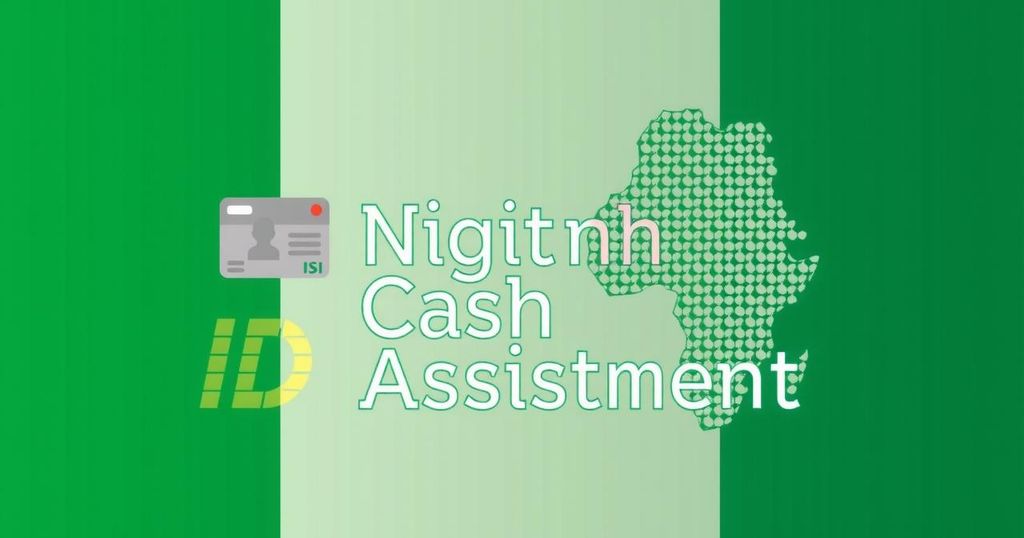The Nigerian government has launched cash payments for 25 million individuals as part of a poverty alleviation program utilizing biometric verification through NIN and BVN. Each household receives 75,000 Naira per tranche. This program is crucial as millions have entered extreme poverty recently, highlighting the need for ongoing economic reform and support measures.
The Nigerian federal government has initiated cash payments to approximately 25 million citizens who are enlisted in the national social register as part of a strategy aimed at alleviating poverty. Beneficiaries are identified through biometric verification procedures involving their National Identification Number (NIN) and Bank Verification Number (BVN). Introduced last October, this cash transfer initiative was initially projected to assist around 15 million individuals. During a recent National Economic Council meeting, Wale Edun, the Minister of Finance and the Coordinating Minister of the Economy, shared updates regarding the payments, confirming that the first two installments have been disbursed. The program targets approximately 67 million people, distributing 75,000 Naira (around US$45) per household per tranche directly to bank accounts or digital wallets. The timing of these cash distributions is critical, given that an alarming 14 million additional Nigerians fell into extreme poverty in 2024, according to the World Bank’s latest macro poverty report. This report indicates that around 47 percent of the populace lives below the global poverty line. To address these issues, the report advocates for decisive government measures, including managing inflation, enhancing non-oil revenue sources, and avoiding deficit monetization for sustainable growth and fiscal stability. Minister Edun emphasized the government’s commitment to developing a comprehensive social register, ensuring the effective delivery of social protection services. Beyond the 25 million recipients, he disclosed that other interventions have benefited many Nigerians, such as a consumer credit facility that assisted 11,000 individuals and a student loan scheme that has provided about 90 billion Naira (approximately US$55 million) to 500,000 students. Furthermore, a plan is in place to provide subsidized farm inputs and equipment to 600,000 farmers nationwide.
In Nigeria, poverty alleviation is a pressing concern, affecting millions of citizens. The government has launched various social intervention programs, with a focus on utilizing biometric identification for transparency and efficiency in the distribution of financial aid. The National Identification Number (NIN) system, complemented by the Bank Verification Number (BVN), serves as a crucial component in verifying eligible beneficiaries for cash transfers, essential for targeting those most in need. The recent cash transfer initiative reflects the government’s ongoing efforts to mitigate the impact of rising poverty levels exacerbated by recent economic challenges.
In summary, the Nigerian federal government’s initiative to distribute cash payments to 25 million impoverished citizens marks a significant step towards combating poverty. The program’s biometric verification system ensures efficient and transparent assistance, highlighting the government’s commitment to social protection. However, the alarming increase in poverty levels underscores the need for further economic reforms and interventions to stabilize the country and improve living conditions for all citizens.
Original Source: www.biometricupdate.com






